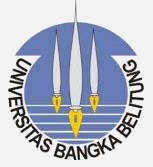Application of Criminal Procedures to Perpetrators of Corruption Crimes Based on Perma No. 1 of 2020 concerning Sentencing Guidelines Article 2 Article 3 of the Corruption Eradication Law
DOI:
https://doi.org/10.33019/berumpun.v6i2.113Keywords:
Criminal law implimentation, corruption crime, Supreme Court rulesAbstract
The Jambi Corruption Crime Court (Tipikor) in handing down crimes is more dominant in applying Article 3 compared to Article 2 against perpetrators who cause harm to state finances and handing down decisions in the light category, namely an average of 1 year and 11 months. Regarding this issue, the aim of the research is to carry out an analysis of the judge's decision in relation to the implementation of Perma No. 1 of 2020 concerning Sentencing Guidelines for Article 2 and Article 3 of the Corruption Law. By conducting a study of the Jambi Corruption Court's decision, the judge's decision will be evaluated in the light, medium and heavy categories, so that a clear picture of the judge's rationale in implementing PERMA No.1 of 2020 is obtained. The type of research is normative juridical, namely examining materials law, both primary, secondary and tertiary legal materials. The approach is to use a statutory approach and a case approach by analyzing cases related to the legal issues discussed. From the results of the research on the Jambi District Court's decision 1) The decision handed down by the Judge regarding the implementation of PERMA Number 1 of 2020 has not been used as a guideline in handing down the decision. This can be assessed from the verdict handed down by the judge. The length of the prison sentence imposed is not in accordance with the categories as formulated, namely the categories of state losses are the most severe, heavy, medium, light and lightest, where in each category there is a classification, namely the range of prison sentences imposed is adjusted to that category. 2) The aim of punishment in corruption cases is to recover state losses, but in the imposition of a substitute sentence imposed by the judge the aim of the sentence has not been realized, because in PERMA there is no regulation regarding guidelines for imposing additional punishment as replacement money.
Downloads
References
Gultom, B. M. (2012). Pandangan Krisis Seorang Hakim dalam Penegakan Hukum di Indonesia, Cet. 2. Jakarta: PT. Gramedia Pustaka.
Nasution, B. J. (2018). Metode Penelitian Ilmu Hukum. Bandung: Mandar Maju.
Hartati, E. (2019). Tindak Pidana Korupsi. Jakarta : Sinar Grafika.
Ali, Z. (2014). Metode Penelitian Hukum. Jakarta: Sinar Grafika.
Hamzah, A. (2016). Hukum Acara Pidana Indonesia. Jakarta: Sinar Grafika.
Abdurrachman, H., et al. (2021). “Palu Hakim Versus Rasa Keadilan Sebuah Pengantar Disparitas Putusan Hakim Dalam Tindak Pidana Korupsi”. Yogyakarta: Deepublish.
H.M. Syarifuddin. (2021). “Prinsip Keadilan Dalam mengadili Perkara Tindak Pidana Korupsi (Implementasi PERMA Nomor 1 Tahun 2020)” Jakarta: Kencana.
Mulyadi, L. (2020). “Menggagas Model Ideal Pedoman Pemidanaan Dalam Sistem Hukum Pidana Indonesia”. Jakarta: Kencana.
Aminanto. K. (2017). “Politik Hukum Pidana 2 (Disparitas Putusan Hakim Dalam Tindak Pidana Korupsi)”. Jember: Jember Katamedia.
Mappiasse, S. (2017). Logika Hukum Pertimbangan Putusan Hakim. Cetakan Ke-2. Jakarta: Penerbit Kencana.
Tama S. L., et al. (2014). Studi atas Disparitas Putusan Pemidanaan Perkara Tindak Pidana Korupsi. Jakarta: Indonesia Corruption Watch.
Marzuki, P. M. (2019). Penelitian Hukum Edisi Revisi. Jakarta: Prenademedia Group.
Anshar. (2018). Infra Petita Putusan Pengadilan Tindak Pidana Korupsi yang Menerobos Ketentuan Pemidanaan Minimum. Jurnal Yudisial, Vol. 11 No. 2.
Imentari, Elly .S, & Andi N. (2020). Urgensi Perumusan Perbuatan Memperdagangkan Pengaruh sebagai Tindak Pidana Korupsi”, Undang: Jurnal Hukum, 3 (1) 61. https://ujh.unja.ac.id/index.php/home/article/view/105).
Rahmayanti, P. (2021). Penerapan Perma Nomor 1 Tahun 2020 Terhadap Disparitas Pemidanaan Tindak Pidana Korupsi (Analisis Putusan Nomor 25/Pid.Sus-Tpk/2020/Pt Mdn), Fakultas Hukum Universitas Muhammadiyah Sumatera Utara.
Syarifah, N. (2021). Mengupas Permasalahan Pidana Tambahan Pembayaran Uang Pengganti dalam Perkara Korupsi. http://leip.or.id/mengupas-permasalahan-pidana-tambahan-pembayaran-uang-pengganti-dalam perkara-Korupsi.
Suyatmiko, W. H. (2021). Memaknai Turunnya Skor Indeks Persepsi korupsi Indonesia Tahun 2020. Integritas: Jurnal Antikorupsi, Vol. 7 No. 1.
Undang-Undang Nomor 20 Tahun 2001 tentang Perubahan atas Undang-Undang Nomor 31 Tahun 1999 tentang Pemberantasan Tindak Pidana Korupsi.
Undang-Undang Nomor 48 Tahun 2009 tentang Kekuasaan Kehakiman.
Undang-Undang Nomor 19 Tahun 2019 tentang Perubahan Kedua atas Undang-Undang Nomor 30 Tahun 2002 tentang Komisi Pemberantasan Korupsi.
Kitab Undang-Undang Hukum Pidana.
Kitab Undang-Undang Hukum Acara Pidana.
Peraturan Mahkamah Agung Nomor 1 Tahun 2020 tentang Pedoman Pemidanaan Pasal 2 dan Pasal 3 Undang-Undang Pemberantasan Tindak Pidana Korupsi.
Website
https://putusan3.mahkamahagung.go.id [diakses pada tanggal 28 Oktober 2021]
http://sipp.pn-jambi.go.id [diakses pada tanggal 1 November 2021]




